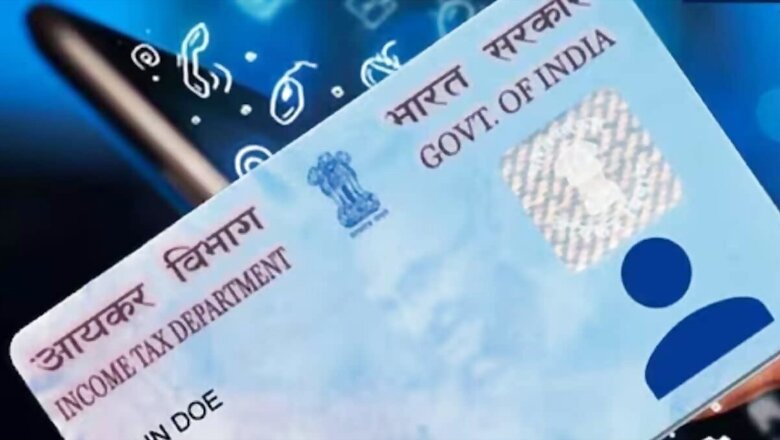
166
views
views
Inactive PAN means that certain financial transactions will be affected, while others can still be carried out with some additional tax implications.
In a bid to expand the tax base and streamline financial activities, the government introduced a new requirement for taxpayers. According to Section 139AA of the Income Tax Act, 1961, it was mandatory to link your Aadhaar number with your permanent account number (PAN) by June 30. Failure to do so could result in your PAN becoming inactive from July 1, 2023.
So, what does an inactive PAN mean for you? Well, it means that certain financial transactions will be affected, while others can still be carried out with some additional tax implications. Let’s take a closer look at the 15 financial transactions that cannot be performed with an inactive PAN.
- You won’t be able to open a regular bank account, except for certain types like time deposits and basic savings bank deposit accounts.
- Applying for a credit or debit card will not be possible without an active PAN.
- Opening a demat account with SEBI-registered entities, which is necessary for trading in securities, will be restricted.
- You cannot make cash payments exceeding Rs. 50,000 to hotels or restaurants at one time.
- Making cash payments exceeding Rs. 50,000 for foreign travel or purchasing foreign currency at one time will be off-limits.
- If you want to invest in mutual funds and the payment exceeds Rs. 50,000, it cannot be done without an active PAN.
- Acquiring debentures or bonds issued by companies or institutions will require payments below Rs. 50,000 if your PAN is inactive.
- Purchasing bonds issued by the Reserve Bank of India will not be possible if the payment exceeds Rs. 50,000 and your PAN is inactive.
- Depositing cash exceeding Rs. 50,000 in a day with banks or co-operative banks will be restricted.
- If you need to purchase bank drafts, pay orders or banker’s cheques from banks or co-operative banks, cash payments exceeding Rs. 50,000 in a day won’t be allowed.
- Opening a time deposit exceeding Rs. 50,000 or aggregating to more than Rs. 5 lakh during a financial year with banks, post offices, Nidhis, or NBCs will be prohibited.
- Making payments exceeding Rs. 50,000 in a financial year for one or more prepaid payment instruments, such as mobile wallets, will not be possible.
- Paying life insurance premiums exceeding Rs. 50,000 in a financial year to an insurer will require an active PAN.
- Engaging in a contract for the sale or purchase of securities (other than shares) for an amount exceeding Rs. 1 lakh per transaction will be restricted.
- Engaging in the sale or purchase of shares of an unlisted company for an amount exceeding Rs. 1 lakh per transaction will not be allowed without an active PAN.




















Comments
0 comment